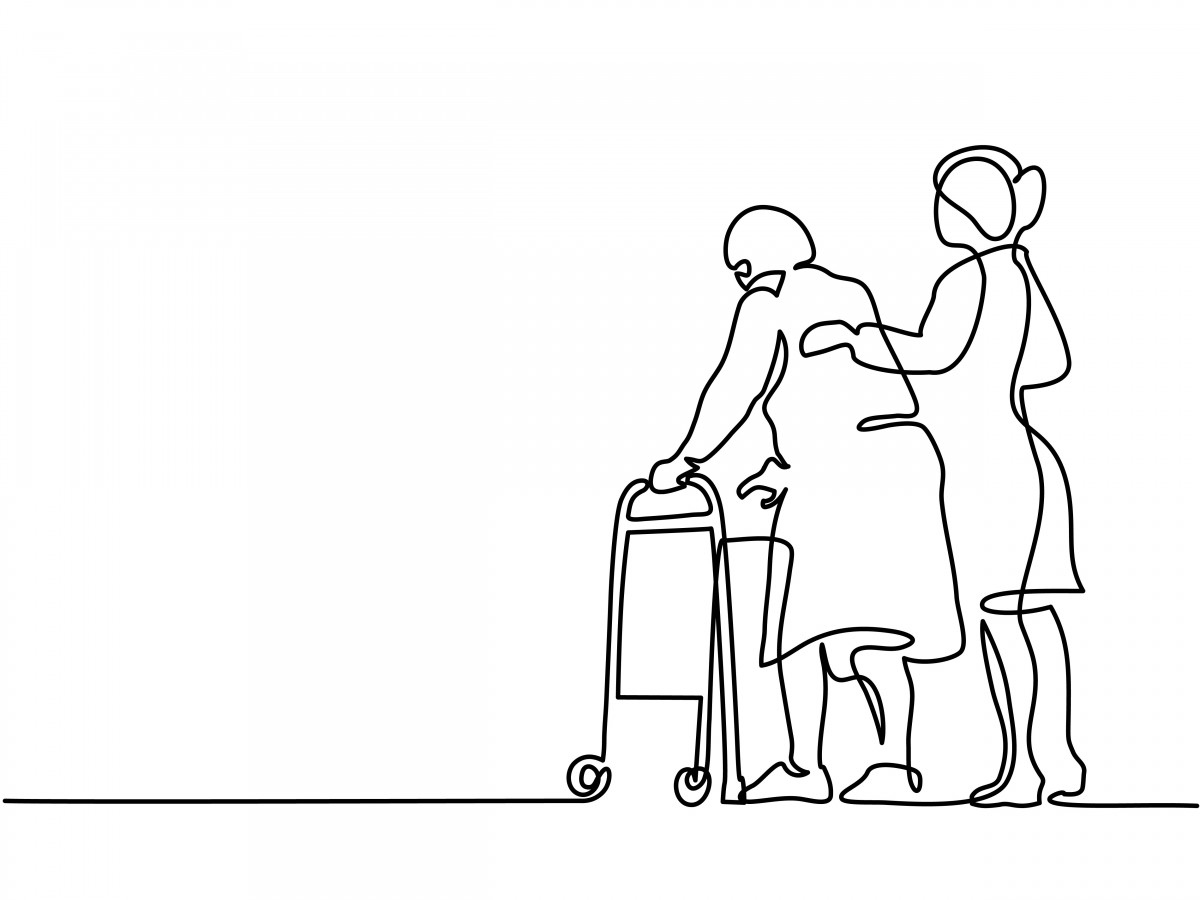Caregiver's Corner: Guardianship and Conservatorship

By: Beth A. Swagman, MSW, ACSW, JD
Once in a while, the news will feature a tight-rope walker traversing a canyon or “walking” between two skyscrapers. It takes a lot of skill and raw courage to tight-rope walk without a safety net. Most of us like the thought of a safety-net when we engage in risky or even semi-risky behaviors. We don’t like to fail, and we really don’t like the consequences of failing.
As we grow older, the ability to manage our health and our finances can fall into that category of semi-risky or risky behavior. Our math skills decline; we lose track of time more easily and may not notice bills are due; or we don’t catch on that our memory is not as sharp as it used to be. Did I inject my insulin this morning or not? Should I do it now or wait and do a double-dose later? The wrong decision can lead to serious health problems. If only we had a safety-net to protect us when our financial skills waiver and we can’t keep straight all our prescriptions and doctor appointments!
There are 2 such safety-nets available. Conservatorship is a safety-net for people who need help with their financial affairs like managing bank accounts, home, retirement plan, etc. We can request a relative or friend, called a conservator, be appointed by the local probate court to manage those financial pieces. We likely request a person we know and trust to fill that role. The probate court reviews our request, also known as a petition, and investigates the person we want to be our conservator. If the probate court approves the petition, the conservator begins to manage our financial affairs. Each year thereafter, the conservator reports to the probate court how our finances are being managed. The reports go out to family members so they, too, can see how the conservator is handling our affairs.
Example: Bonnie is a 75 widow. Her husband, Ted, owned and managed 2 duplexes. He handled all of their assets and monies. He prepared taxes and kept the books on his properties. Bonnie does not know how to do any of these things. Ted and Bonnie live quite comfortably off the rent from the duplexes, so Bonnie does not want to sell them. She doesn’t know what to do. She needs someone to manage the properties; to keep the income stream steady; prepare rental contracts, and figure out the taxes. Her son-in-law. Jeff, is a handy man and runs his own small repair shop. Bonnie would like Jeff to become her conservator. He is paid a monthly fee for his services and Bonnie has peace of mind.
Guardianship is a safety-net for people who need help making medical decisions and many of the day-to-day decisions we all face. The person appointed to help us, called a guardian, spends more time with us because there are many decisions to be made about our health and our living arrangements, and these decisions may need to be made more frequently.
The appointment of a guardian is different than the appointment of a conservator. More likely, someone else suggests that we need a guardian. In other words, it isn’t our idea. Still, we likely know and trust the person who petitions to be our guardian. We can disapprove of the idea of a guardianship or disapprove of the person being appointed as guardian – either is called “contesting” the matter. Like a conservator, the guardian reports to the probate court each year. The guardian reports on our health, our social activities, our mental health needs, and our living arrangements. Like the conservator, the report goes out to our family members so they, too, have a good picture of our health and living situation.
Example: Jerry is 68 year Viet Nam veteran. He lives on social security and has been diagnosed with PTSD (posttraumatic stress disorder). Jerry was evicted from two apartments for failure to pay his rent while experiencing severe depressive episodes. Jerry’s sister, Carol, suggested she become his limited guardian. Carol now manages his funds so his rent is paid on time. She also takes Jerry to his scheduled appointments with his mental health provider which has resulted in better management of his depression.
With a guardianship and a conservatorship, there is a court hearing that we may attend and may participate in. We may have an attorney appointed to represent us, especially if we feel the idea of a guardianship or conservatorship is a bad idea or to request the probate court appoint someone else with whom we feel more comfortable.
If all of this sounds simple, it isn’t that way for everyone. Young or old, people may suffer a serious health problem or accident which leaves them unable to make financial decisions and health decisions. People with alcohol or drug addictions can also make poor financial and health decisions which jeopardize their health and living arrangements. These people often can’t express their thoughts about guardianship or conservatorship, or don’t want a guardian or conservator. A family member must step up and take action to protect that person’s finances and make medical decisions until that person recovers, and sadly, sometimes for the remainder of that person’s life.
To some people, the idea of a guardianship or conservatorship sounds like tight-rope walking. Is there a safety-net if the guardian or conservator isn’t doing a good job? If you are one of those people, you might be interested to learn about alternatives to a guardianship and conservatorship.
The next Family Caregiver University class will be held on Tuesday, August 11: 1-3 p.m. The class will focus on Guardianship and Conservatorship. Experts from the community with over 20 years of experience will share their knowledge with the group. To register for the class, please call call (888) 456-5664. Other resources for caregivers can be found on www.caregiverresource.net
Caregiver’s Corner is provided as a public service of the Caregiver Resource Network. The Caregiver Resource Network is a collaboration of West Michigan organizations dedicated to providing for the needs and welfare of family and professional caregivers within the community. Funded by the Area Agency on Aging of Western Michigan with Older American’s Act Title IIIE, Family Caregiver Support funds.
Beth A. Swagman, MSW, ACSW, JD is a graduate of Calvin College, University of Michigan – School of Social Work, and Thomas M. Cooley Law School. Ms. Swagman has authored three books; Too Close for Comfort, Preventing Child Abuse, Responding to Domestic Violence. Ms. Swagman.
Tagged:

